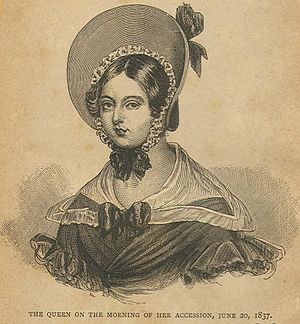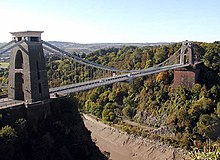Victorian era

The Victorian era of Great Britain is considered the height of the British industrial revolution and the apex of the British Empire. It is often defined as the years from 1837 to 1901, when Queen Victoria (often referred to as the greatest and most beloved of all the British monarchs) reigned, though many historians believe that the passage of the Reform Act 1832 marks the true inception of a new cultural era. The Victorian era was preceded by the Regency era and succeeded by the Edwardian period. Victoria also had the longest reign in British history.
Politics
The period is often characterised as a long period of peace and economic, colonial, and industrial consolidation, temporarily disrupted by the Crimean War, although Britain was at war every year during this period. Towards the end of the century, the policies of New Imperialism led to increasing colonial conflicts and eventually the Boer Wars. Domestically, the agenda was increasingly liberal with a number of shifts in the direction of gradual political reform and the widening of the franchise.
In the early part of the era the House of Commons was dominated by the two parties, the Whigs and the Tories. From the late 1850s onwards the Whigs became the Liberals. Many prominent statesmen led one or other of the parties, including Lord Melbourne, Sir Robert Peel, Lord Derby, Lord Palmerston, William Ewart Gladstone, Benjamin Disraeli and Lord Salisbury. The unsolved problems relating to Ireland played a great part in politics in the later Victorian era, particularly in view of Gladstone's determination to achieve a political settlement.
In January 1858, the Prime Minister Lord Palmerston, responded to the Orsini plot against French emperor Napoleon III, the bombs for which were purchased in Birmingham, by attempting to make such acts a felony, but the resulting uproar forced him to resign.
In July 1866, an angry crowd in London, protesting Russell's resignation as prime minister, was barred from Hyde Park by the police; it tore down iron railings and trampled the flower beds. Disturbances like this convinced Derby and Disraeli of the need for further parliamentary reform.
During 1875 Britain purchased Egypt's shares in the Suez Canal as the African nation was forced to raise money to pay off its debts.
In 1882 Egypt became a protectorate of Great Britain after British troops occupied land surrounding the Suez Canal in order to secure the vital trade route, and the passage to India.
In 1884 the Fabian Society was founded in London by a group of middle-class intellectuals, including Quaker Edward Pease, 17, Havelock Ellis, 25, and Edith Nesbit, 26, to promote socialism. George Bernard Shaw and H.G. Wells would be among many famous names to later join this society.
On Sunday, November 13, 1887, tens of thousands of people, many of them socialists or unemployed, gathered in Trafalgar Square to demonstrate against the government. Metropolitan Police Commissioner Sir Charles Warren ordered armed soldiers and 2,000 police constables to respond. Rioting broke out, hundreds were injured and two people died. This event was referred to as Bloody Sunday.
Events
In 1851 the Great Exhibition (the first World's Fair) was held in The Crystal Palace, with great success and international attention.
In 1888, the serial killer known as Jack the Ripper murdered and mutilated prostitutes on the streets of London, leading to world-wide press coverage and hysteria. Newspapers used the deaths to bring greater focus on the plight of the unemployed and to attack police and political leaders. The killer was never caught, and the affair contributed to Sir Charles Warren's resignation.
Science, technology and engineering

The impetus of the industrial revolution had already occurred, but it was during this period that the full effects of industrialisation made themselves felt, leading to the mass society of the 20th century. The revolution led to the rise of railways across the country and massive leaps forward in engineering, most famously by Isambard Kingdom Brunel.
During the Victorian era, science grew into the discipline it is today. In addition to the increasing professionalism of university science, many Victorian gentlemen devoted their time to the study of natural history.
Charles Darwin's On the Origin of Species was published in 1859 and had a tremendous effect on the popular mindset.
In 1882, incandescent electric lights were introduced to London streets, although it took many long years before they were installed everywhere.
Prostitution
In the writings of Henry Mayhew, Charles Booth and others, prostitution began to be seen as a social problem, rather than just a fact of urban life. It also began to be seen as a feminist issue in the work of Josephine Butler, who attacked the long-established double standard of sexual morality. Prostitutes were often presented as victims in sentimental literature such Thomas Hood's poem The Bridge of Sighs, Elizabeth Gaskell's novel Mary Barton and Dickens' novel Oliver Twist. The emphasis on the purity of women found in such works as John Ruskin's Sesame and Lilies led to the portrayal of the prostititute as soiled and corrupted, who needed to be cleansed.
This emphasis on purity was allied to the stress on the homemaking role of women, who helped to create a space free from the pollution and corruption of the city. In this respect the prostitute came to have symbolic significance as the embodiment of the violation of that divide. The double standard remained in force. Divorce legislation introduced in 1857 allowed for a man to divorce his wife for adultery, but a woman could only divorce if adultery was accompanied by cruelty. The anonymity of the city led to a large increase in prostitution and unsanctioned sexual relationships. Dickens and other writers associated prostitution with the mechanisation and industrialisation of modern life, portraying prostitutes as human commodities consumed and thrown away like refuse when they were used up. Moral reform movements attempted to close down brothels, something that has sometimes been argued to have been a factor in the concentration of street-prostitution in Whitechapel by the late 1880s.
See also
- Victorian architecture
- Victorian fashion
- Victorian morality
- Victorian literature
- History of British society
- Horror Victorianorum
- Women in the Victorian era
Sources and further reading
- Altick, Richard Daniel. Victorian People and Ideas: A Companion for the Modern Reader of Victorian Literature. W.W. Norton & Company: 1974. ISBN 039309376X.
- Burton, Antoinette (editor). Politics and Empire in Victorian Britain: A Reader. Palgrave Macmillan: 2001. ISBN 0312293356.
- Flanders, Judith. Inside the Victorian Home: A Portrait of Domestic Life in Victorian England. W.W. Norton & Company: 2004. ISBN 0393052095.
- Mitchell, Sally. Daily Life in Victorian England. Greenwood Press: 1996. ISBN 0313294674.
- Wilson, A. N. The Victorians. Arrow Books: 2002. ISBN 0099451867
and so on
